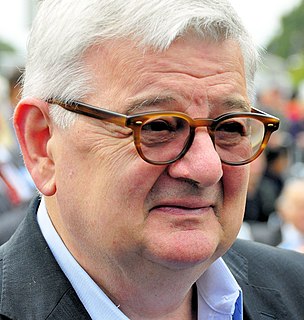A Quote by Douglas Hurd
War on Iraq runs the risk of turning the Middle East into an inexhaustible recruiting ground for anti- western terrorism.
Related Quotes
I think the public is very reluctant to get involved in more foreign wars, especially in the Middle East. And they understand, implicitly, that we go to war in the Middle East because of oil. And if we don't want to go to war in the Middle East, then we have to do something about the oil problem. And I think that view is gaining ground in the U.S.
Sadly, a U.S. invasion of Iraq 'would threaten the whole stability of the Middle East' - or so Amr Moussa, secretary-general of the Arab League, told the BBC on Tuesday. Amr's talking points are so Sept. 10: It's supposed to destabilize the Middle East. The stability of the Middle East is unique in the non-democratic world and it's the lack of change in Iraq, Iran, Saudi Arabia, Syria, Egypt that's turned them into a fetid swamp of terrorist bottom-feeders.
In fact if you look at Reagan's global war on terrorism it very quickly turned into a massive terrorist war: [by us] Central America, South Africa, the Middle East, all U.S.-backed terrorism. That's one of the reasons why it disappeared from history and why the standard line is that Bush 43 declared the war on terror. Actually he just repeated what Reagan had said 20 years earlier.
Shrouded by the 'dodgy dossier,' which warped opaque intelligence, none of the stated war aims in Iraq spoke to the British national interest. Illusory dreams of bringing Western-style democracy to the Middle East were punctured by failures of planning and strategy, as catalogued before the Chilcot Inquiry.
Ending torture and tyranny in Iraq was not a mistake. Supporting democracy in Iraq is not a mistake. Helping the long-suffering Muslims of Iraq who now seek to live democratically is not a mistake. In the long, long history of the Middle East, this breakthrough may one day be ranked as a dramatic turning point in regional history.


































